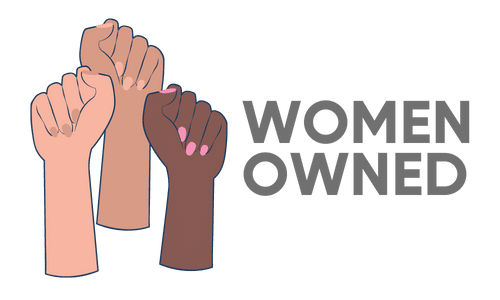As an intern at Accelerate this summer, I have been extremely fortunate to have had a number of rewarding experiences which have contributed significantly to my professional and personal growth. I was given the incredible opportunity to speak with Sharon Sayer Thompson, a graduate from Texas A&M University with a BS focused in Manufacturing Engineering Technology, the current Vice President of Supply Chain at Grupo Lala and a dedicated mother. Upon discussing with Sharon important topics such as being a woman in engineering, sexual discrimination and harassment in the workplace and how to balance being a highly successful professional female leader and a mother, I feel there were a few main takeaways that I, and many other women embarking on their personal career paths will find helpful to them.
What led you to the field of study which you pursued at Texas A&M?
As the first in her family to attend college, Sharon began her studies at the University of Houston on a scholarship but later transferred to Texas A&M. At first, she planned to major in Chemical Engineering but upon realizing she didn’t have a true passion for this major, she broadened her horizons and began to explore different departments. She genuinely enjoyed the kinds of classes she was taking in Manufacturing Engineering and Technology, and her grades went from mostly C’s to A’s and B’s in no time at all.
How did you find yourself in the Supply Chain Industry?
Sharon’s faith is extremely important to her, and she believes the path she ended up taking in life was truly meant to be. She described herself as having very little guidance in relation to choosing a career, and it just so happened that one day she stumbled upon an article talking about food manufacturing. She knew a lot of manufacturing was being conducted outside of the U.S, but recognized it was more difficult to do this with some parts of the food industry and so it seemed like a field with a lot of potential for her to get involved.
Takeaway: One huge message that Sharon sought to get across while discussing her background was that the path you take in life doesn’t have to be perfect, it can be windy. What’s important is that you aren’t afraid to take risks and explore in order to find a field of study and eventually a career that you genuinely enjoy and are passionate about.
Do you feel that your profession is very male dominated?
Sharon does feel that her profession is very male dominated, but also that her upbringing and childhood experiences laid a foundation for her to be successful in this environment. In high school, Sharon participated in co-ed sports such as golf. The golf team at her high school was a mixed team where she learned to create meaningful friendships with boys and how to work with them to reach a common goal.
Sharon also shared with me two instances involving sexual harassment and discrimination from her professional experiences. She highlighted the importance of how women need to respond to such behavior, and the importance of standing up and speaking up.
Sharon: “As a young woman, you can’t say it’s alright. Because it’s not. But you want to because it’s so embarrassing you want it to go away. I am actually surprised at my maturity at that level to take a step back and think about whether this would be acceptable to anybody on my team, how would I handle it. I need to make sure that this gets addressed appropriately because I need to be seen as a leader, and mature, and I’m not going to let people do that to me.”
Takeaway: While it may be uncomfortable and difficult to deal with situations involving sexual harassment or discrimination, we as women must stand up for ourselves and for one another in order to make a difference and to put an end to such inappropriate and disturbing behavior. While we have surely made strides since the 1990’s and early 2000’s when these incidents occurred, the fight against sexual discrimination and harassment is ongoing. We have an obligation as women to use our voices and to establish higher standards in the workplace.
What advice would you give to a young woman looking to take on some of the roles you have had?
Sharon: “The best advice I can say is that you are a woman, and you have a lot to offer that men don’t. We are made differently and so, you can show your compassion, but you can also show your strength, your knowledge as well as you can hold people accountable and I really think it’s unique.”
Sharon expressed that over time she has learned about the importance of understanding and managing people in being an effective leader. She has developed a perspective in which she manages her employee’s like a family unit and explained how working to understand people’s behaviors has allowed her to have success when placing individuals into roles and managing her team. She specifically related her managerial approach to her parenting strategies.
Sharon: “You know, you can’t be the hammer all the time and I don’t actually think it’s that different when you’re managing people. You don’t love them the same as you love your child, but I think women are really set up to be very good at developing people at mentoring people, at showing the compassion to them but as well as knowing when it’s time to hold them accountable…You set expectations, you give somebody the resources and the knowledge to do well, you give them the positive feedback and compliment them whenever they are, you appreciate them and then they kind of, (people tell you not to do this) but they become your family. They depend on you, you depend on them, and for me personally I feel like as a woman it’s easier to understand that, to understand that when you put it into your children when you put it into your sister to your brother your mother your father and then you put it into the other people the same way, you tend to care. So I am a numbers person, but you can see that over time it really does evolve into if I want my numbers to be good, I have to invest in people.”
Takeaway: For Sharon, managing the people who work for her is like managing a family. She sees women as being at an advantage when it comes to managing people, as she feels the compassion, patience and sense of understanding many women have to offer puts them in an advantageous position to manage a team and to identify when an individual isn’t a great fit for their position.
What advice would you give to a woman looking to balance their family and professional life?
Sharon: “So I would just say that there are seasons in life and know when it’s a priority. Women now are having children much later, so I had my son when I was 30 and I think that helped out my career waiting until I was thirty because I had already established myself, my skills, my capabilities, people already knew my potential. I tell some of the kids like, everybody feels like they’re supposed to constantly be doing better and getting promoted. And I’m like no, at the end of the day this is your life, and your season, so you pick when you want to do that, and then you pick when you want to plateau and when you want to focus on your family and your life, because there’s going to be time later for you to do that. I think it’s just when you’re in your season where you want to plateau, you have to make sure that you’re plateauing somewhere that is secure and safe and comfortable, you can’t decide to plateau at a very high stressful position.”
Conclusion: Of all of the incredible advice Sharon had to offer, the main takeaway and message which can be discerned is that you are in control of your own life and the decisions that you make. As women, we face some challenges that men do not. Although it may be inevitable that we as women face some of this unique adversity, we still ultimately hold the reins in our career paths and in what decisions we make on a daily basis. It is up to each individual person to choose what they want to study, when to try and change careers or move positions, and ultimately what passion of theirs they want to dedicate their time to and pursue. From this conversation, it became clear to me that as a young woman entering the professional world, what’s important to remember is that my life is in my own hands. I am the one responsible for finding a career I’m passionate about, and for dictating my own timeline. Challenges will come, but ultimately it is all about how you respond to those challenges and asking yourself if you’re happy in the position you’re in, and if you’re not happy, asking yourself what you can do about that.


